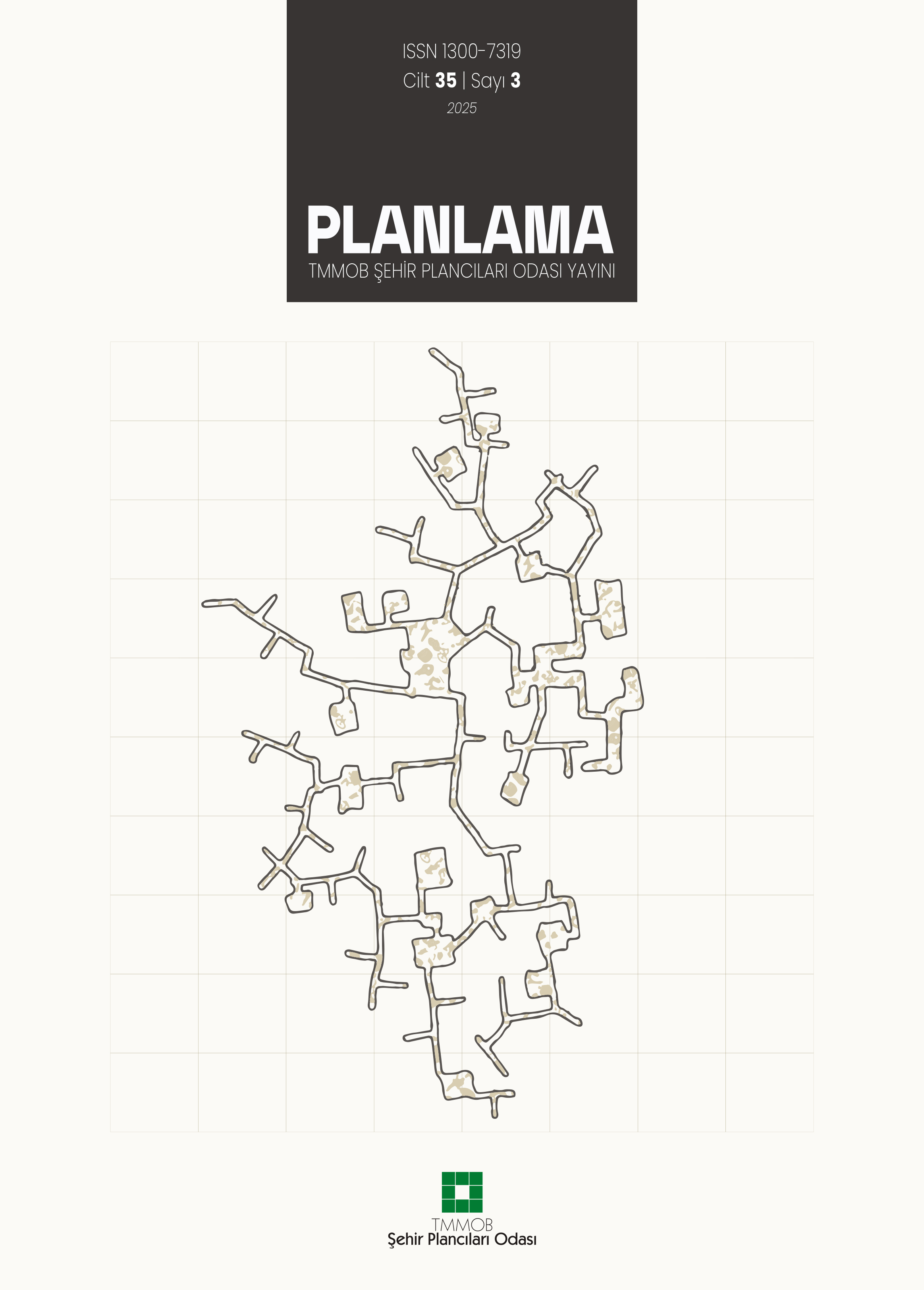Bir Planlama Örneği Olarak Köy Enstitüleri Deneyimi
Gul Simsek1, CANSIN MERCANOĞLU21Atatürk Üniversitesi, Şehir ve Bölge Planlama Bölümü, Erzurum2Orta Doğu Teknik Üniversitesi, Şehir Planlama Lisansüstü Programı, Ankara
Köy Enstitüleri, Cumhuriyetin ilanının ardından modernleşme sürecine giren Türkiyenin tarihinde, kırdan başlayan bir kalkınma vizyonuna sahip planlı bir eğitim hamlesinin en etkin özneleridirler. Uzun yıllar süren bir ulusal savaşın ardından, ülkenin yüksek oranda bir kırsal nüfusa ve düşük bir eğitim düzeyine sahip olduğu göz önünde bulundurularak, kıra öncelik veren eğitim odaklı bir kalkınma planlanmıştır. O dönemin aydınlanma ruhu ile köy enstitüleri vizyonu bir araya gelerek ülke sathında 1940-1948 yılları arasında 21 bölgede köy enstitüleri kurulmuştur. Köy enstitüleri kuruluş kararının arkasında, bu yorgun fakat kararlı ülkenin içinde bulunduğu koşulların geniş bir analizinin izleri bulunmaktadır. Tüm köy enstitüleri; çağdaş kültürel, bilimsel ve uygulamalı bilgilerin sağlandığı ortamlar olmalarının yanısıra yere özgü içsel kaynaklardan beslenmeleri ile kalkınmanın lokomotiflerinden olmuşlardır. Köy enstitüleri; işbirliği ile gerçekleşen yapım süreçleri, teorinin yanısıra uygulamaya ve üretime verdikleri yer, kampüs organizasyonları, özgün eğitim modelleri, planlı gelişim süreçleri, bulundukları yöreye ve ülkeye olan katkıları gibi nitelikler ile, alışılmış eğitim kurumlarından farklılaşan bir yere sahiptirler. Ülkesel ve bölgesel planlamadan sorumlu bir kuruluşun olmadığı bir dönemde, dönemin eğitimden sorumlu bakanlığı; dünya için çok yeni bir eğitim anlayışını ülkeye tanıtmış olmanın yanısıra, eğitim kurumlarının yer seçimlerinde bölgesel bazlı bir öngörüyü geliştirmiştir. Bu noktada çalışmanın temel amacı; köy enstitülerini, enstitülerin kuruluşunda gözetilmiş olan planlı yaklaşım üzerinden değerlendirmektir. Araştırma; o döneme ait belgeler ile köy enstitüleri üzerine yapılmış çalışmalardan derlenen yazılı ve görsel kaynaklar ışığında sürdürülmektedir. Ortaya çıkan sonuçlar; yere özgü dinamiklerinin ortaya çıkarılmasını bekleyen bölgeler öncelikli olmak üzere, ulusal ve bölgesel ölçekte bir planlama vizyonuna sahip eğitim yaklaşımları için bugün de yol gösterici niteliktedir.
Anahtar Kelimeler: Bölge, eğitim; kalkınma; köy; köy enstitüsü; planlama.
The Village Institutes Experience of Turkey as a Planning Case Itself
Gul Simsek1, CANSIN MERCANOĞLU21Department of City and Regional Planning, Atatürk University, Erzurum2City Planning Graduate Program, Middle East Technical University, Ankara
Village institutes are the active subjects of planned education movement having development vision that rose from villages in the history of Turkey, which entered in the process of modernism with the proclamation of the Republic. After a national war extended for many years, a development giving precedence to the villages and focusing on education was planned by taking into consideration of high level of rural population and low level of education in the country. The spirit of enlightenment and the vision of rural institutes came together, and 21 village institutes were founded throughout the country between 1940 and 1948. On the background of founding village institutes, there are the marks of a comprehensive analysis of the conditions of this exhausted but determined country. All the village institutes were the locomotives of development by virtue of the fact that feed by endogenous resources alongside the contemporary cultural, scientific, and applied knowledge they provided. Village institutes have unique features in comparison with the usual educational institutions such as their collaborative construction processes, emphasis on practicing and producing they placed besides theoretical information, spatial organization of campuses, precious education models, planned development processes, their contributions to the locality and the country as well. When there was no public institution responsible for national and regional planning, the ministry responsible for education developed a regional-based vision while deciding the locations of these institutions, besides it introduced an education approach to the country that was very new for the world. At this point, the main purpose of this research is to evaluate the village institutes regarding the planned approach that had been taken into consideration in their establishment process. The research is conducted through the records concerning that period, and the written and visual documents compiled from the studies carried on about the village institutes. The results reached have a guiding role even for today for the regions primarily waiting for their local-specific dynamics to be revealed, and also for educational approaches those have a planning vision at national and regional levels.
Keywords: Development, education; planning; region; village; village institute.
Makale Dili: Türkçe














